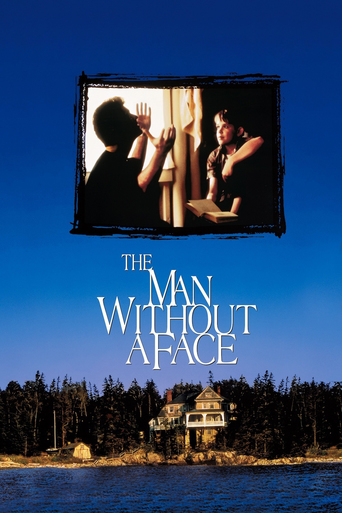

Mel Gibson directs and stars in this 1993 drama based on the novel which co-stars Nick Stahl, Margaret Whitton and Geoffrey Lewis. This takes place in the late 1960's where we meet Charles Norstadt (Stahl), a troubled boy who wants to leave home and attend military school. Soon, he meets Justin Mcleod (Gibson), a former teacher with a scarred face who takes him under his wing, tutoring him and they become friends. The late, Whitton (Major League) plays Charles' mother, Catherine and Lewis (Tango & Cash) plays Police Chief, Stark. I've always liked this film and Gibson and Stahl are great together. I recommend this.
... View MoreI suppose that if you asked most people which was Mel Gibson's finest film, they would probably say "Braveheart" (although, that may be more due to the spectacle of that film). Of course, today Mel Gibson is out of favor, and perhaps deservedly so because of his rants and personal issues of the past decade or so (although as of this writing, he does seem to be regaining some credibility in Hollywood). But if you ask me which Gibson film is best, I would say "The Man Without A Face". In case you weren't aware, he not only starred in the film, but also directed it.As director, Gibson here was able to elicit 3 brilliant performances: his own, as a disgraced and disfigured teacher; an astounding performance as a troubled kid by then child-actor Nick Stahl; and an overlooked but wonderful performance as a not-well-adjusted mother by Margaret Whitton.From what I have read, this film diverges from the novel (same title) in that in the latter, a sexual relationship between the teacher and the student is implied, while in the film it is just the opposite. I would have to agree with Gibson's view that it's the appearance of possible impropriety that makes the film work. However, if you're expecting a truly happy ending, you're going to be disappointed. It's one of the films where you wish there had been an addendum taking place 5 or 10 years later.As a former teacher and principal, I can understand exactly how certain assumptions are made about teacher/student relationships. So it is rather heartbreaking here to see how Gibson's character is ostracized by something that had never actually taken place. On the other hand, Gibson's character here is not faultless; it is himself who has made himself the ultimate loner, and it's too bad that aspect of the story had not been explored just a bit more.Nevertheless, this is an incredible film, and I highly recommend it. It is a good reminder of just how fine an actor Mel Gibson was and why he was so successful for quite a run in American films.
... View MoreI've not seen more than a handful of Mel's movies. Certainly all the violent money makers, but last night, I watched "TMWaF". I am not a movie critic and don't know how to critique movies, but this movie, I loved from beginning to end. Every actor played their role (large or small) so well it was like I lived in the town and was watching everyday life. I won't go on and on. I recommend the movie to all, even those hooked on the latest zombie movies or those youngsters who crave violent action flicks. Take some time out, watch this one and prepare to see a movie that will keep you thinking. A movie that shows what MOVIES can be. BTW I was left with a question: did all the town shun and despise Justin McLeod? I would have thought at least some of the women would have felt sorry for him seeing the undamaged half of his face and seeing how he would have been the handsomest man any of them could have known and just wondering "ah, what could have been".
... View MoreThis film is underrated, but being underrated can be a good thing because it might mean that behind the low rating hides a movie that isn't given the deserved credit. Here's a prime example of that.'The Man Without a Face' is a funny, human, sensitive, touching and harsh movie. It is a lesson of life and it deals a lot with life's problems and serious stuff. Besides, there is also a lot of comedy, which is a surprise for such a serious film. But the combination of these different elements is effective.Mel Gibson is someone I tend to find overrated, as an actor and as a director. But with 'The Man Without a Face' he made a great movie and proved that after all he is worth something as a director and as an actor, thanks to his great acting as Justin McLeod.Nick Stahl is brilliant as Chuck Norstadt. I love his acting, he really convinces in whatever he does in this movie, he's truly that expressive. Chuck is so funny: his hilarious lines, his strong personality, his devilish sense of humor and the extremely goofy facial expressions he does when he is completely "in the moon". He is also very inquisitive, determined and stubborn, It's also funny that, although he is 14 years old, his face is very childish, making him look much younger than he is. However, Chuck is also a troubled and enraged boy. I can't blame him: with a father like he had, a mother like that and an older half-sister like that, no wonder he is a little crazy. Only his younger half-sister is decent.The film can also count with the help of a nice soundtrack (with soft instrumental music and a great oldie song - "Born a Woman" by Sandy Posey), as well as the simple fact that it takes place in Maine - which means it has beautiful vistas, all natural. It is also worth for the old cars and those acquaintanceships in family and with neighbors and friends. Like I said before, this movie is a lesson of life. You can actually learn a lot from it. It's interesting what is possible to learn from it.Title in Portugal: 'Um Homem Sem Rosto'.
... View More